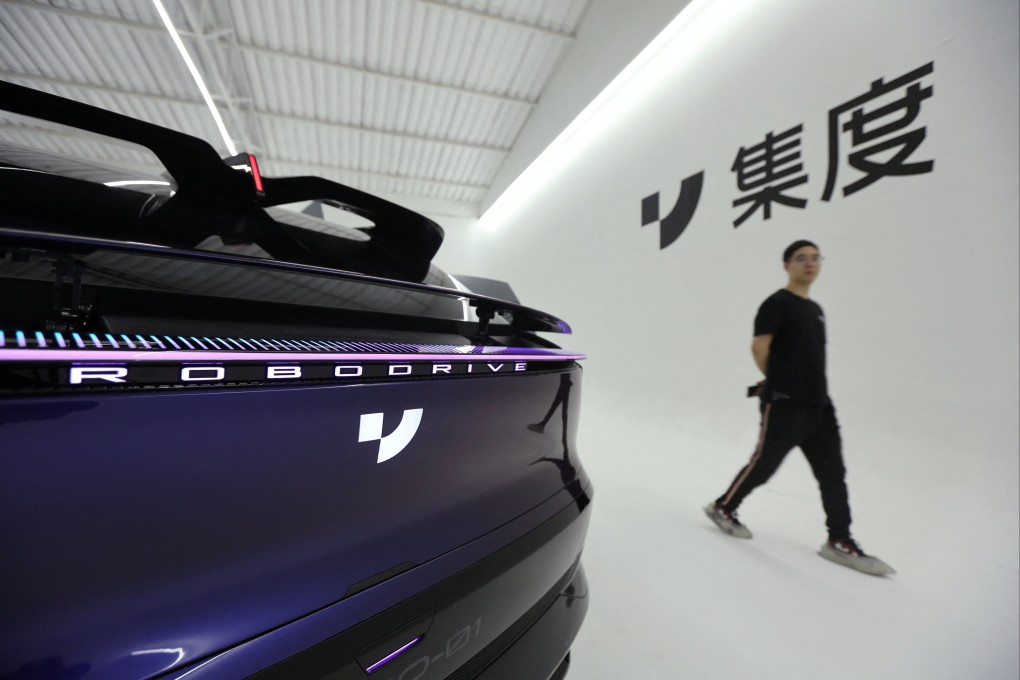Baidu’s Jidu Auto releases virtual concept robocar as intelligent EV unit moves towards mass production in 2023
- Jidu Auto’s chief executive Xia Yiping introduced the company’s first concept robocar, called Robo-01, in Xi Rang
- A planned production car in 2023 is expected to be about 90 per cent similar to the virtual concept car introduced on Wednesday

At a press conference on Wednesday that opened with a segment from classic US sci-fi series Knight Rider, Jidu Auto’s chief executive Xia Yiping introduced the company’s first concept robocar, called Robo-01, in Baidu’s version of the metaverse Xi Rang.
“The Jidu robocar aims to meet users’ needs for intelligent travel, in-car intelligent assistance and an intelligent cabin in the new era,” said Xia, the co-founder and former chief technology officer of bicycle-sharing company Mobike, during the virtual press conference.
After setting up Jidu with leading mainland carmaker Geely last March, the release of Robo-1 marks a milestone for Baidu as it seeks to take on more established rivals such as Tesla and domestic EV start-ups such as Nio, Li Auto and XPeng.
The concept robocar contains features including a 3D borderless dash screen, zero-gravity seating, a U-shaped steering wheel and adjustable lidar. The 3D cockpit platform operates with Qualcomm’s Snapdragon chips.
Tesla’s founder Elon Musk recently said that Tesla aims to have self-driving cars, without the need for human intervention, by May 2023.